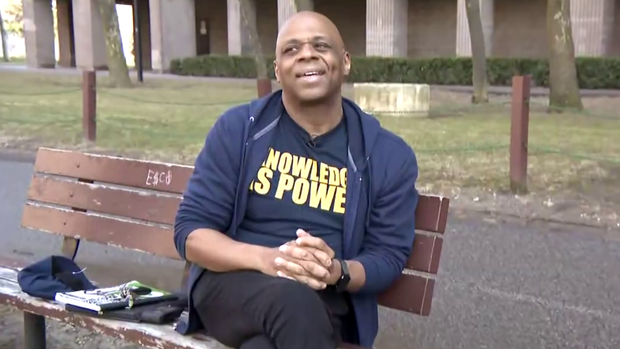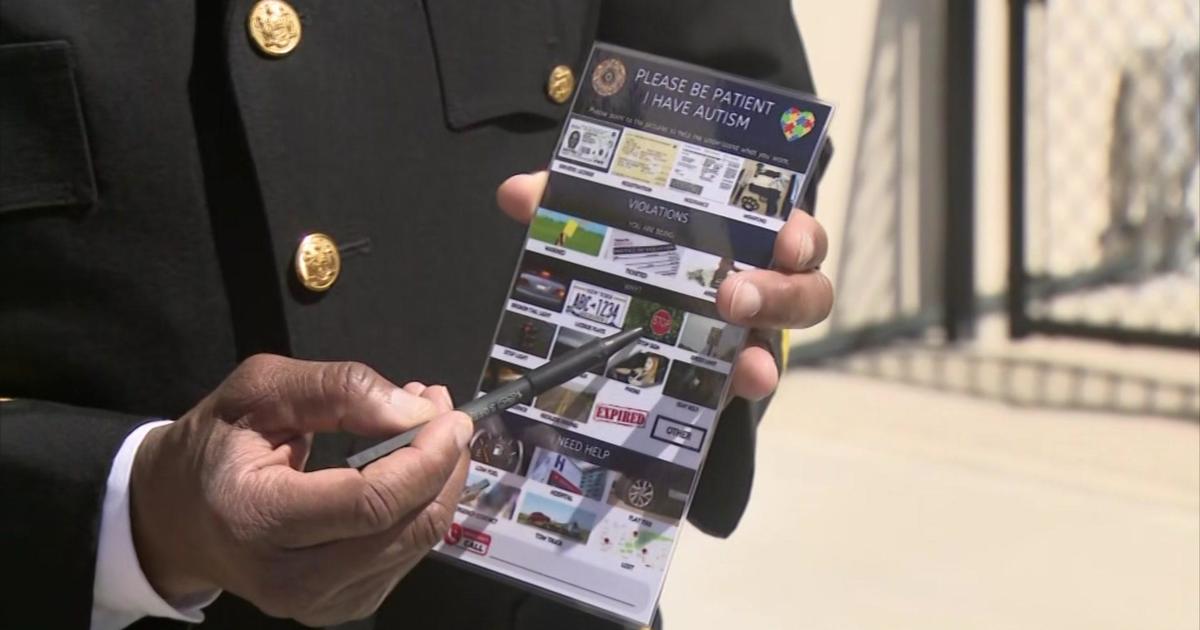Criminal justice advocate shares his experience being held on Rikers Island: "It was hell"
NEW YORK -- While there's a push to change bail reform and put more people behind bars, deaths continue to mount on Rikers Island.
Sixteen detainees died last year alone, followed by three so far this year.
CBS2's Aundrea Cline-Thomas spoke with Marvin Mayfield, who is now a criminal justice advocate. But decades before bail reform was in place, he spent years of his life, on different occasions, at Rikers awaiting trial. He shared the long lasting impact.
"I came up in a time and an environment where most young Black men were expected to become part of the criminal justice system at some point in time. And I fell into that category, into that trap," Mayfield told Cline-Thomas. "At age 15 was the first time I had some interactions with the police."
"Fast forward... I'm 22 years old, I'm just coming home from the military, I'm still living in Brooklyn - I've got a little apartment in Brooklyn. It's 2 a.m., I'm walking down the street coming from a party, and police approach me, throw me on the hood of a car, rough me up, beat me up, hit me in the ribs with their sticks. And it wasn't until I got to central booking that I found out that I was being charged with a crime that had occurred in the neighborhood, and I was being charged with a burglary," he continued. "So even though they took me in under suspicion because I was in the place, they held me because I had a prior record because I've had a prior charge."
"Three days in central booking before I got to a judge, who imposed a $10,000 bail on me. I didn't have $10 at the time," he said.
"So they took you to Rikers?" Cline-Thomas asked.
"So they took me to Rikers, and that's where the story really began," he replied. "It was hell."
"Eleven months of abuse, 11 months of degrading treatment, 11 months of negligence and apathy and brutality," he continued. "So at the end of 11 months on one particular court date, the prosecution came to me and said, 'Look, Mr. Mayfield' -- I should mention that not at any time, had my lawyer or anyone ever said, 'Here's the evidence we have against you, here's discovery,' nothing -- After 11 months, they said that, 'If you plead guilty today, you get time served and go home.'"
"Your option was to stay in and fight this case, or you can go home today?" asked Cline-Thomas.
"Or could go home today -- but another guilty plea, another guilty plea to a felony on my record," he replied.
"The worst and hardest blow of everything was to plead guilty to something I didn't do just to stop that suffering," Mayfield continued, as he started to choke up. "The prosecutors held all the cards, and they told me that if I didn't take this plea today, they're going to dangle this mandatory minimum over my head of five years... So instead of rolling the dice, instead of taking my chances, I pled guilty and I went home that day... But I went home as a two-time felon."
"Tell me what you're feeling right now," Cline-Thomas said.
"I feel set up, you know, set up by a system that didn't have to incarcerate me at that time. It didn't have to do that," he said.
"Before you went in, you had started a job, you had secured a place, had a car -- What happened to all of those things?" Cline-Thomas asked.
"All of those things, my job and my place, were all gone after 11 months. I couldn't hold onto it," he replied.
For two decades, Mayfield became part of the revolving door of the legal system and was incarcerated pre-trial multiple times, including on drug charges, before he says he took another plea deal and served time in prison.
This was before the bail laws were changed. Now, he is a community organizer and advocate for criminal justice reform.
"I have to raise my hand. I haven't always been the upstanding citizen that you see sitting here today... I raise my hand to some things that I've done in my life," he said. "But these were things that happened in my neighborhood and my community."
"You never went to trial. You were held every time because you couldn't pay bail. What did that experience do to you?" Cline-Thomas asked.
"It made me feel helpless. It made me feel trapped," Mayfield replied.
"Do you think the legal system would've expected you to turn out the way you have?" asked Cline-Thomas.
"[Laughs] The legal system would never have expected me to turn out the way I have. You know why? Because I didn't even expect me to turn out the way I have," he replied.
"If there is one thing in this whole bail reform conversation that you want to make sure you convey to people, what would that be?" Cline-Thomas asked.
"That bail reform is working and it has been able to save lives, transform lives and I guess bring fairness to a system that had been completely, completely against people of color," Mayfield said.
Cline-Thomas asked Mayfield how he was able to turn his life around, and he said there were educational opportunities with NYU and Columbia that helped change his mindset.





